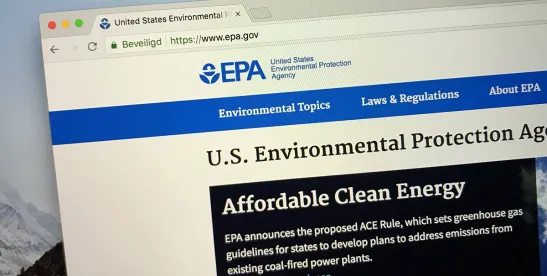The US Environmental Protection Agency (EPA) is out with a new rule about how a state can go about assuming EPA's and the US Army Corps of Engineers' "dredge and fill" permitting responsibilities under Section 404 of the Clean Water Act. Some of you might remember that the State of Florida was authorized to discharge this responsibility at the very end of the first Trump Administration. The Federal Courts reversed that authorization. As many of us predicted, no other states pursued this authorization during the Biden Administration.
So what will be the effect of EPA's new rule? As I told Bobby Magill of Bloomberg, I don't expect this rule to have much of an effect at all. After the Supreme Court's monumental Sackett decision dramatically limited the extent of the Federal Government's authority over wetlands, the juice might not be worth the squeeze. But, as I also said, if EPA's and the Corps' resources are diminished to the point that they are unable to discharge their Clean Water Act responsibilities, the States may have no choice but to attempt to step in.
But all of this is beside the more important point. That is that most states continue to not have wetland protection regulations of their own, or the state personnel necessary to enforce those regulations. And the effect of that will continue to be what it has been.
As this may be my last Passle of the year, I hope that you and yours enjoy a happy and healthy holiday season.
“I think most states will remain disinterested in taking on this responsibility unless and until EPA’s and the Corps of Engineers’ resources are diminished to the point that they are unable to discharge their statutory responsibilities,” said Jeff Porter, chair of the environmental law practice at Mintz, Levin, Cohn, Ferris, Glovsky and Popeo PC in Boston.




 />i
/>i

